Fort Good Hope, N.W.T., leaders optimistic Imperial Oil visit marks turning point in relationship
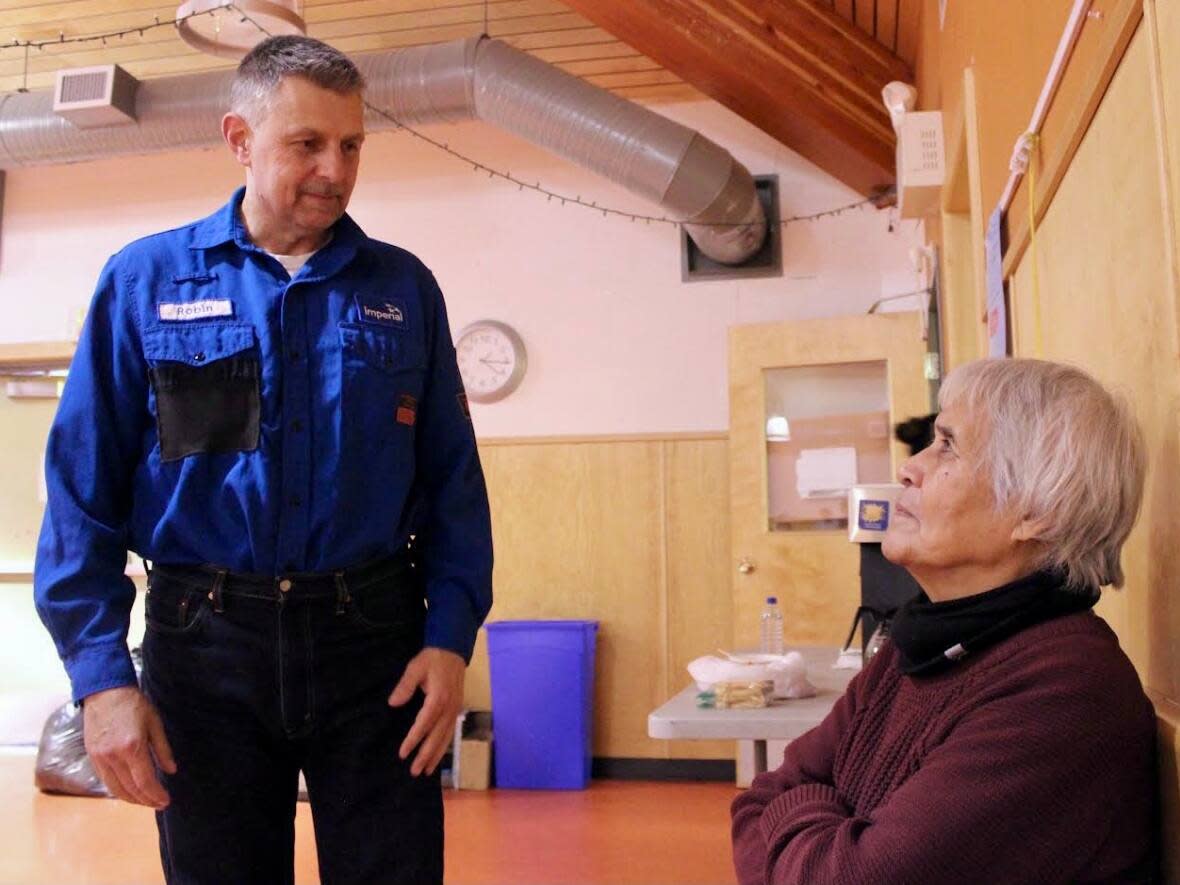
Leaders in Fort Good Hope, N.W.T., hope a meeting with Imperial Oil this week marks a turning point in their relationship with the 143-year-old company.
"Let me be blunt. Prior to that meeting today, I didn't think they've been a good neighbour," said Edwin Erutse, president of the Yamoga Land Corporation in Fort Good Hope, at Tuesday's meeting.
Imperial Oil sent about a dozen staff to the community. Company representatives held a meeting with leaders and organized an open-house style event, as part of a tour to all the Sahtu communities. The company called the tour "neighbour week."
Fort Good Hope lies downstream of Norman Wells, N.W.T., where Imperial Oil has been extracting oil since 1921. The operation includes wells on natural and artificial islands in the Mackenzie River and a central processing facility, and it uses an Enbridge pipeline to send oil to Alberta.
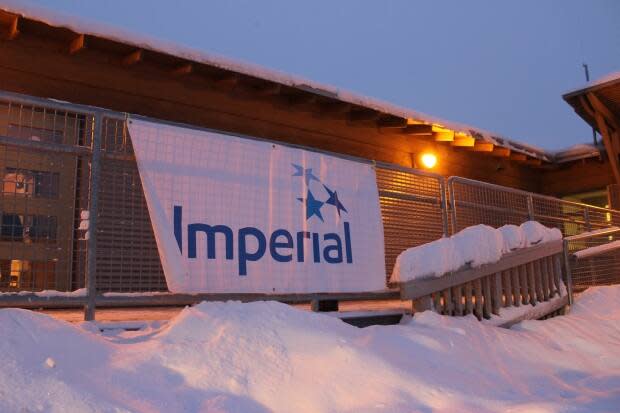
"For all the years we've been living together, right next door, they never seem to have taken the interest of the Indigenous peoples living right here. And today, here we are together," said Lucy Jackson, the community's chief, calling the visit "incredible."
Erutse said Imperial Oil agreed to reach an agreement with Fort Good Hope, and his understanding was "they're going to go back and put some ink to paper, and hopefully we can reach, propose, some type of general agreement."
Some people in the community say they want to see more economic benefits, jobs or training opportunities from the company's operations in the region.
"What the specifics of any agreement may look like is too early for me to comment on," he said. Erutse also said the company agreed to further discussions with Fort Good Hope — though no date for those discussions has been planned.
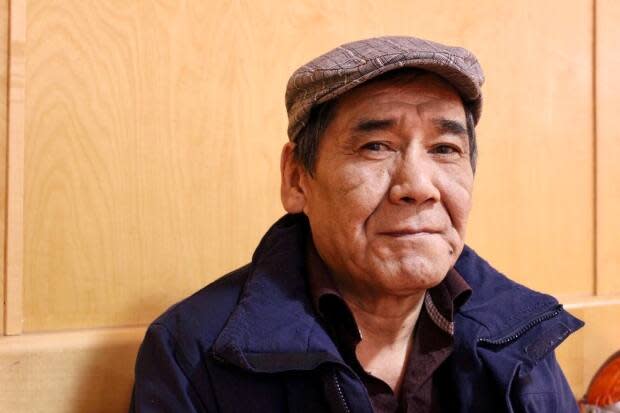
Imperial Oil said it's going to start the process of renewing licences with the Sahtu Land and Water Board and the Canada Energy Regulator to operate in the Sahtu. The new permits would allow them to keep extracting oil in Norman Wells for another decade.
An Imperial Oil representative declined to do an interview at the open house, saying staff were not trained to speak to the media.
Is Imperial Oil a good neighbour?
When asked if Imperial Oil has been a good neighbour to Fort Good Hope, Jackson said the company has had no relationship with her community for its century of operation in the Sahtu region.
"Never, never have been neighbours," she said. "I don't think they had seen us as neighbours, that they could talk to peoples here."
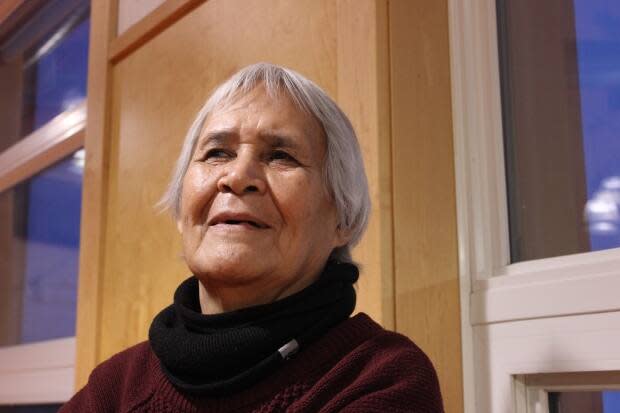
Edna Tobac, speaking as a resident of the community, said she didn't know if Imperial Oil was a good neighbour — but the company could do a better job to communicate and involve Fort Good Hope in its plans.
Charles McNeely, the chairperson of the Sahtu Secretariat, suggested a better neighbour would support Fort Good Hope with community investments — such as for an all season road that would create jobs and make southern travel more accessible.
"Life's getting hard now, and I'd like to see them, you know, kind of help us out a bit more."
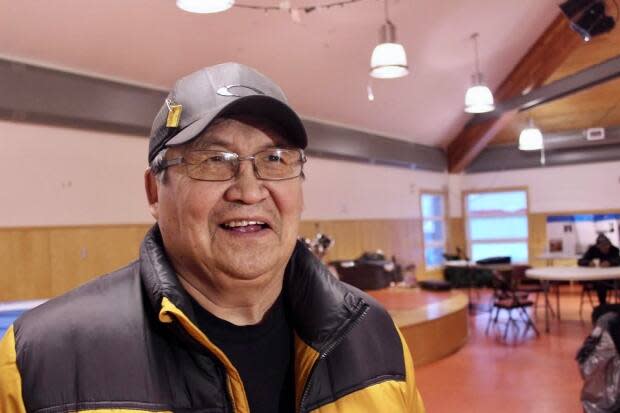
Tommy Kakfwi, the recently-ousted chief of Fort Good Hope, said Imperial Oil could be a better neighbour if it chose to haul its contaminated waste out of the Sahtu whenever it closes down.
Imperial Oil highlighted its 2022 investments in the Sahtu during the open house. That includes the donation of 10 Imperial houses to all 5 Sahtu communities, $50,000 to a non-profit that supports residents travelling south for medical care, $15,000 for a regional youth conference and $12,000 to a food pantry in Norman Wells.
River health — past, present, future
Imperial Oil's effect on the health of the Mackenzie River — past, present and future — was top of mind for many local residents.
"Normally we set a fish net every summer. This summer, we didn't," said Tobac, citing a produced water leak in late July. She said the company was slow to provide information about what had happened.
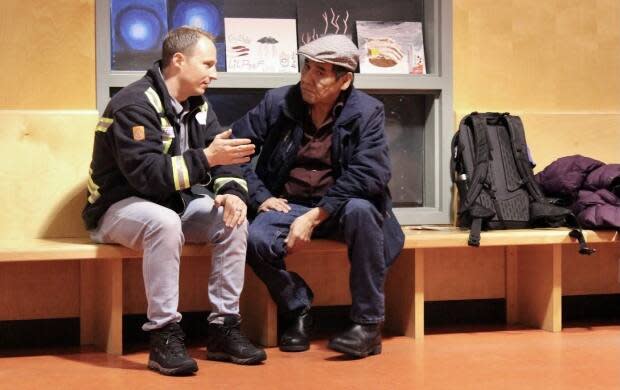
It wasn't until nearly a month later that Imperial Oil confirmed where the leak had happened — below the river — and that water samples showed no risk to public health or aquatic life.
Tobac said there are a lot of people in her community that don't trust eating the fish out of the Mackenzie River. She also worries about how Imperial Oil is going to handle the eventual closure of its extraction plant.
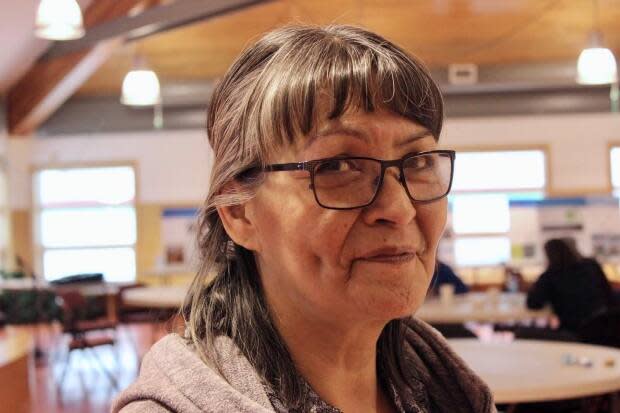
The company withdrew an application to build a waste management facility as part of its closure and reclamation plan, leaving Tobac, Erutse and others wondering what it's going to do with its waste in the future.
"We want a clean part of the country. Clean, I mean clean. Not leave their mess there," said Jackson.
"We want to make sure they clean up and remediate everything before they leave," said Erutse. "Now that's being a good neighbour."


